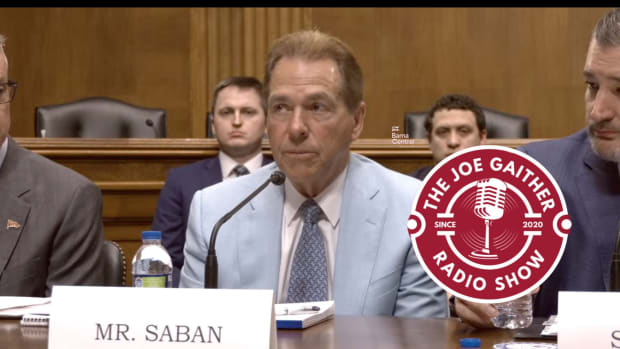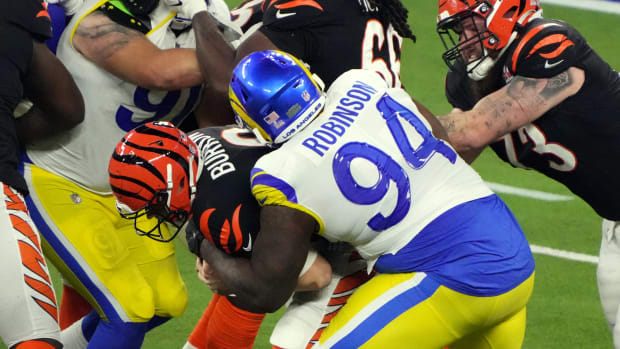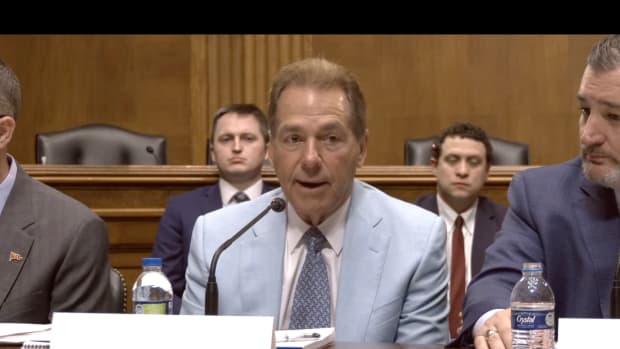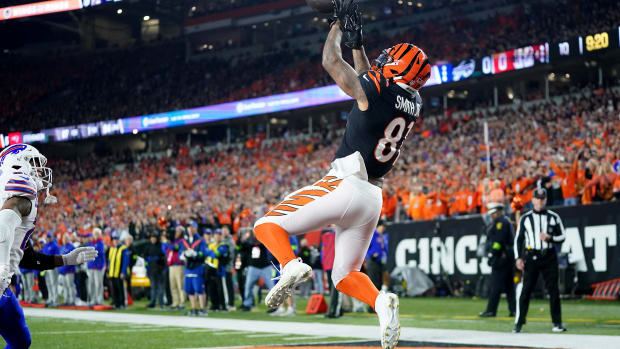Crimson Tide keeps rolling despite lack of continuity on coaching staff
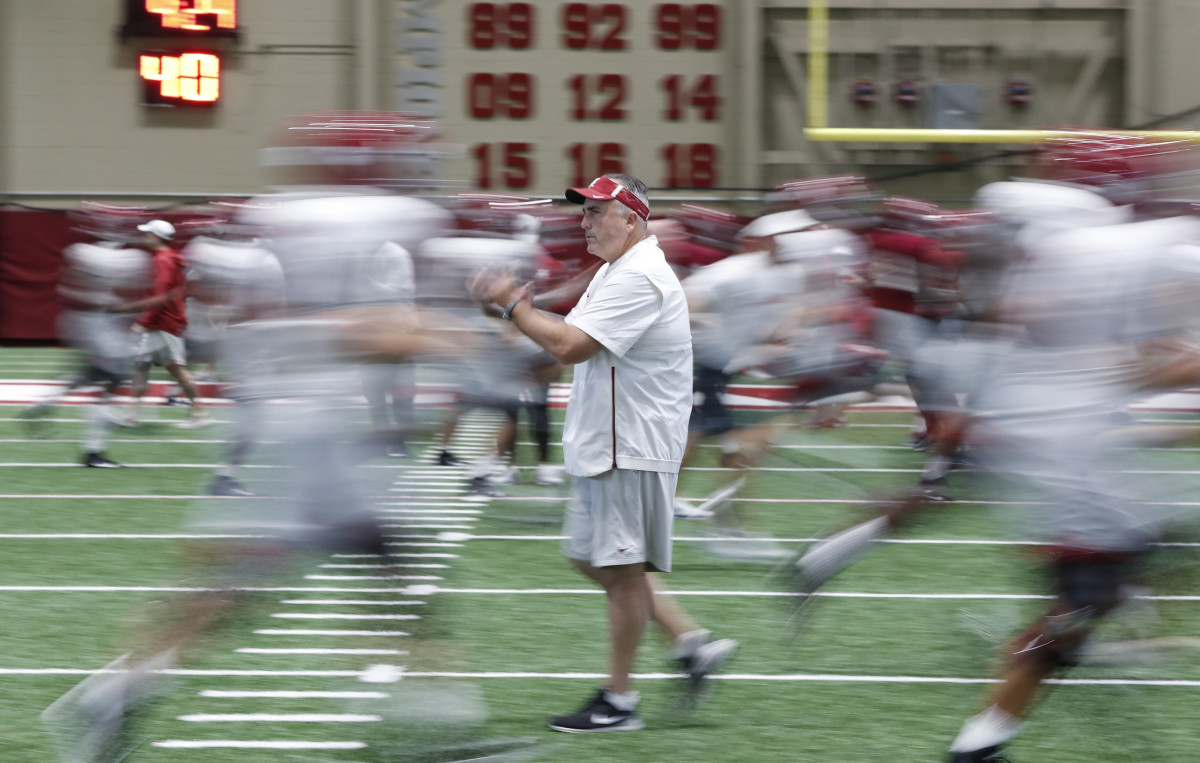
It was one of the first days of spring football at the University of Alabama, and a position group was holding a film session. Leading the discussion was one of Nick Saban’s new assistant coaches and he was still trying to get everyone’s names down.
So when he’d tried to point something out that a player had done well, or a mistake, he didn’t always identify them correctly.
“He’s still learning,” a veteran player said with a chuckle, but he understood. The assistant wasn’t the first new position coach he’d had at Alabama.
“I like him a lot,” the player continued.
Although Saban may be the dean of Southeastern Conference coaches, and overall there are only a handful in college football who have been at their schools longer, the same can’t be said of his coaching staff.
Continuity is obviously preferred, and Saban is emphasizing it moving forward, but turnover has been a constant over the years. Many get opportunities elsewhere, as every Power 5 conference has at least one head coach who used to be on the Crimson Tide payroll. Other times things just didn’t work out.
Moreover, even when a new staff is in place it takes a while for everyone to work well together. Like with an offensive line or defensive secondary, it takes time for everyone to gel.
Yet something that no one can dispute while Saban keeps winning titles, including last season’s 2018 Southeastern Conference championship, Alabama has become the sport’s premier spot for coaching development.
“I’m really pleased with the way the new coaching staff has come together,” Saban said. “We have new leadership on both sides, and those guys have done a really good job of developing relationships with the players. They’re very knowledgeable. They’re well-organized, do a good job of leadership, and the coaching staff has fallen into place very nicely, as well.
“I’m really excited about the staff that we have, what they’ve been able to accomplish, the relationships that they’ve made, the development of the players and how the players have responded on both sides of the ball.
Although this was the second straight offseason that a majority of the 10-man coaching staff was replaced, Saban didn’t go about it the same manner this time. After having to hire six new assistants, and having all new coordinators in 2018, he looked for a more experienced, well-rounded group.
There was also a certain amount of familiarity with many of them as well.
For example, while Steve Sarkisian may be Alabama’s new offensive coordinator, he previously had the role for one game after being promoted from analyst. It just happened to be the national championship game at the end of the 2016 season.
“Well, I think it’s big,” Sarkisian said about his previous Crimson Tide stint. “If you recall, when I was here in ’16 I really didn’t really arrive until after the first regular-season game that year. So I was here for the regular season in an analyst role.
“I was part of the game planning and the process, but I wasn’t as integrated with the players that way, so it allowed me at that time to kind of have — I don’t want to say a 10,000-foot view of the program, but I had a chance to observe the program because I was here a lot to learn from Coach Saban.”
Sarkisian, who already had a longstanding relationship with quarterback Tua Tagovailoa through recruiting, returned following a two-year stint as the offensive coordinator of the Atlanta Falcons. One of the wrinkles he brought with him was putting a wide receiver in motion deep in the backfield and executing a quick lateral, which Henry Ruggs III took for a 75-yard touchdown on the first play against New Mexico State.
He also wasn’t alone as Saban also hired his offensive line coach from the Falcons, Kyle Flood, the former head coach at Rutgers (2012-15). Their familiarity with one another helped lead a smooth transition for the offense.
“They’re like a crazy duo,” junior right tackle Jedrick Wills Jr., said. “They spread like a whole bunch of knowledge throughout the whole offensive line room, and the offense in general.”
Meanwhile, the defensive coaching staff saw numerous changes, beginning with inside linebacker coach Pete Golding who was promoted to defensive coordinator.
“He reminds me a lot of some of the other young guys that have come up in the organization and had a lot of success,” Saban said.
Another key move was the return of Sal Sunseri as outside linebackers coach. Crimson Tide fans well remember how much he helped the pass rush from 2009-11, and the 2011 defense made a claim as being one of the best in college football history.
Sunseri wasn’t alone either when he back to Tuscaloosa, bringing along both sons to serve as graduate assistants, Tino and Vinnie, the former Crimson Tide safety.
“He's hard-nosed, I mean he's old-school,” senior outside linebacker Anfernee Jennings said about Sunseri. “I can't help but like that."
Saban hadn’t previously worked with his other three hires, Holmon Wiggins from Penn State to lead the wide receivers, and both running backs coach Charles Huff and defensive line coach Brian Baker from Mississippi State. However, all three had strong reputations as rising coaches and recruiters.
They’ll have some serious talent to work with in Tuscaloosa.
“Sometimes we’ll stay after practice and talk about things or go over things, like the little things and what are some of the things I can get better from last year,” senior defensive end Raekwon Davis said about Baker. “That’s our biggest goal. He wants to make sure I’m 100 times better than last year.”
Finally, instead of having both a quarterbacks coach and offensive coordinator, Saban had Sarkisian handle both and instead brought in Charles Kelly to help coach the secondary.
Kelly primarily handles the safeties, with Karl Scott focusing on the cornerbacks. Of course, Saban also coaches the position group at practice, but he called the former Florida State defensive coordinator a “wonderful addition to the staff.”
“Charles Kelly was a guy that I've oftentimes considered being a coordinator here,” he said.
The other holdover in addition to Golding and Scott was special-teams coordinator and tight ends coach Jeff Bank, who had helped turned Alabama’s return units into some of the best in college football.
“I can’t tell you how excited I was,” redshirt junior tight end Miller Forristall said about Banks staying. “When I saw all these coaches leaving, I was like, ‘Please, Lord, please can we keep Coach Banks?’
“I was so pumped that he came back … It’s fantastic.”




